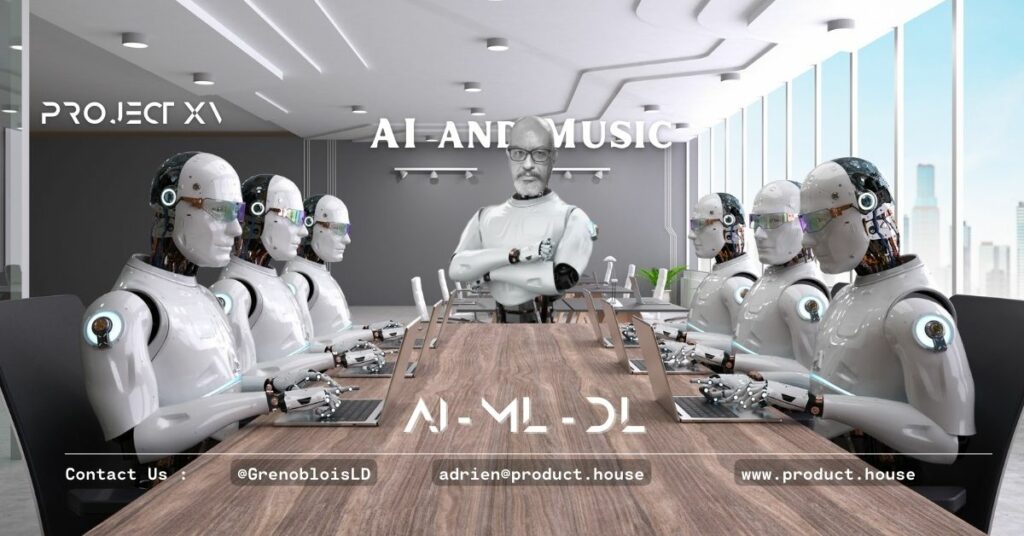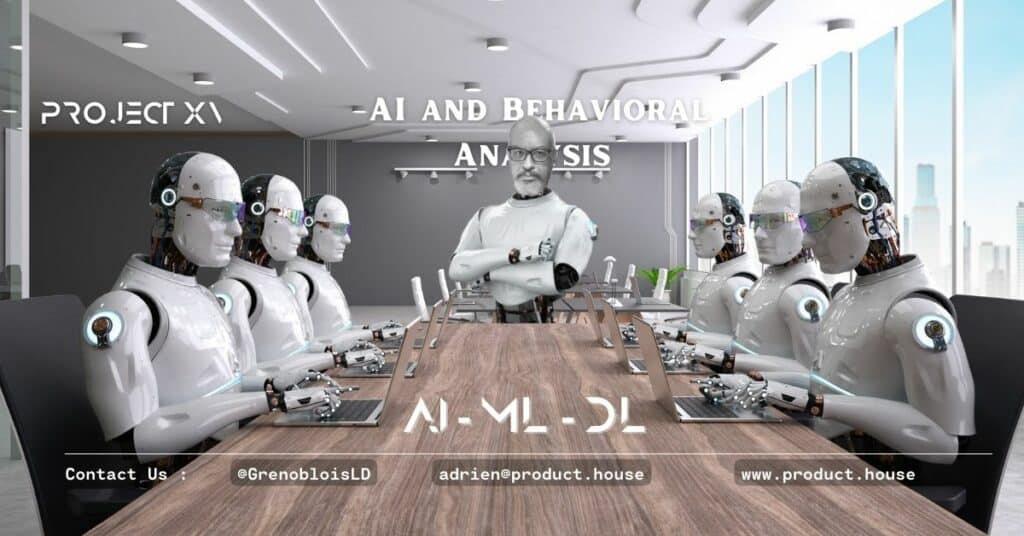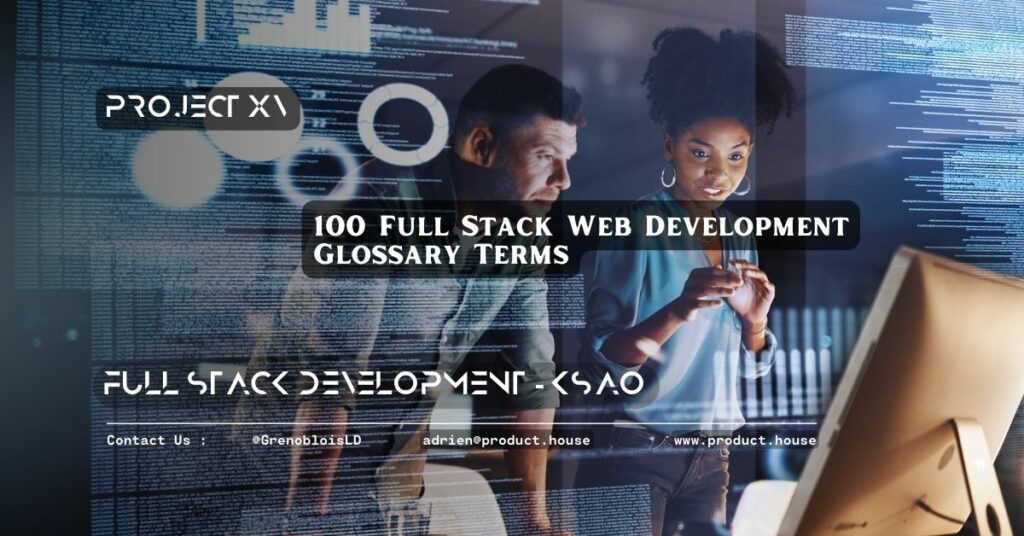AI and Music: Creating and Analyzing Music with Machine Learning

Artificial intelligence (AI) has advanced tremendously in recent years and has played an increasingly significant role in the music industry. The use of AI in music composition and analysis has revolutionized the way music is created, analyzed, and consumed. In this article, we will explore the world of AI and music and its various applications, including the creation of music using machine learning, the analysis of music using AI tools, and the future of AI in the music industry.
Introduction to AI and Music
AI, in its simplest definition, refers to the ability of a machine or computer program to perform tasks that typically require human intelligence. In the music industry, AI technology is used to create and analyze music. AI algorithms can analyze large amounts of data, such as melodies, rhythms, and chord progressions, and use this data to generate new music.
AI tools can also analyze existing music and provide insights into musical trends, preferences, and characteristics. With AI, music creators and producers can create and manipulate music in ways that were previously impossible, allowing for new and innovative musical creations.
AI and Music Creation
The use of AI in music creation is a growing trend in the music industry. With AI algorithms, music can be created in a variety of ways, such as through the generation of new melodies, harmonies, and rhythms, or through the manipulation of existing music.
One popular method of using AI in music creation is through the use of machine learning. Machine learning algorithms use statistical analysis to identify patterns and make predictions based on existing data. In music, machine learning can be used to analyze existing musical pieces and use this analysis to generate new music.
One example of a music creation tool that uses machine learning is Amper Music, which is an AI-powered music production platform that allows users to create music through a simple drag-and-drop interface. With Amper, users can create original music by selecting a genre, mood, and tempo, and the platform will generate a unique musical piece based on these parameters.
AI and Music Analysis
In addition to music creation, AI is also used for the analysis of music. AI algorithms can analyze musical pieces to identify various musical characteristics, such as tempo, melody, and key, and provide insights into the structure and composition of a song.
One example of an AI tool for music analysis is Shazam. Shazam is an app that allows users to identify songs by listening to a few seconds of the song. The app uses AI algorithms to analyze the song and match it with its database of songs, providing users with the song’s title, artist, and album.
Another example of an AI tool for music analysis is Spotify’s “Discover Weekly” playlist. The playlist uses AI algorithms to analyze a user’s listening habits and provides a personalized playlist of recommended songs based on the user’s music preferences.
Future of AI and Music
The future of AI in the music industry is bright, and we can expect to see even more innovative applications of AI in the coming years. One area where AI is likely to have a significant impact is in the area of personalized music.
With the use of AI algorithms, music streaming services could provide personalized
playlists and recommendations for users based on their listening habits, preferences, and mood. AI algorithms could analyze a user’s listening history and suggest new songs or artists that the user may enjoy.
Another area where AI is expected to have a significant impact is in the area of live music performances. AI algorithms could be used to analyze the acoustics of a concert venue and adjust the sound accordingly, providing an optimal listening experience for the audience.
Furthermore, AI could be used to generate live visuals that are synchronized with the music. With the use of AI algorithms, live visuals could be generated in real-time, creating an immersive experience for the audience.
Conclusion
In conclusion, the use of AI in the music industry has changed the way music is created, analyzed, and consumed. With the use of AI algorithms, music creators and producers can create and manipulate music in ways that were previously impossible, allowing for new and innovative musical creations.
Furthermore, AI algorithms can analyze musical pieces and provide insights into various musical characteristics, providing a deeper understanding of the composition of a song. With the continued development of AI technology, we can expect to see even more innovative applications of AI in the music industry in the coming years.
FAQs
- What is machine learning in music? Machine learning is a subfield of artificial intelligence that focuses on the development of algorithms and statistical models that enable machines to learn from data and make predictions or decisions. In music, machine learning is used to analyze large datasets of musical compositions to identify patterns and generate new musical pieces.
- What is the difference between AI and machine learning? AI is a broader term that refers to the development of machines and algorithms that can perform tasks that typically require human intelligence, such as problem-solving, decision-making, and language understanding. Machine learning, on the other hand, is a subfield of AI that focuses on the development of algorithms that enable machines to learn from data and make predictions or decisions.
- Can AI create music on its own? Yes, AI can create music on its own using machine learning algorithms. With the use of machine learning algorithms, AI can analyze large datasets of musical compositions and use this analysis to generate new musical pieces.
- How is AI used in the music industry? AI is used in the music industry for a variety of applications, such as music creation, music analysis, and personalized music recommendations. AI algorithms can analyze large datasets of musical compositions to identify patterns, generate new music, and provide insights into musical trends and preferences.
- What are some examples of AI-powered music tools? Some examples of AI-powered music tools include Amper Music, AIVA, and Jukedeck. These tools use machine learning algorithms to generate new music pieces based on user specifications, such as genre, mood, and tempo.
- How does AI impact the music industry? AI has revolutionized the way music is created, analyzed, and consumed. With the use of AI algorithms, music creators and producers can create and manipulate music in ways that were previously impossible, allowing for new and innovative musical creations.
- What is the future of AI in the music industry? The future of AI in the music industry is bright, and we can expect to see even more innovative applications of AI in the coming years. AI is expected to have a significant impact on personalized music and live music performances.
- What are some potential benefits of using AI in music? Some potential benefits of using AI in music include increased efficiency and productivity, the ability to analyze large amounts of data, and the creation of new and innovative musical compositions.
- What are some potential drawbacks of using AI in music? Some potential drawbacks of using AI in music include the potential loss of creativity and originality, the potential for bias in the algorithms, and the ethical considerations surrounding the use of AI in music.
- Who are some experts in the field of AI and music? Some experts in the field of AI and music include Rebecca Fiebrink, David Cope, and David Hockman. These experts have conducted extensive research in the field of AI and music and have contributed to the development of AI-powered music tools.
List of Relevant Experts who Explored the Topic:
- Rebecca Fiebrink, Assistant Professor of Computer Science at Princeton University
- David Cope, Professor Emeritus of Music at the University of California, Santa Cruz
- David Hockman, Professor of Music Theory at Florida State University
List of Potential Case Studies:
- The use of AI in creating a new album
- The use of AI in analyzing musical trends and preferences
- The use of AI in creating personalized music recommendations
List of Examples of Use:
- Amper Music, which uses machine learning algorithms to generate new music pieces based on user specifications
- Shazam, which uses AI algorithms to identify songs based on a few seconds of the song
- Spotify’s “Discover Weekly” playlist, which uses AI algorithms to analyze a user’s listening habits and provide a personalized playlist of recommended songs
Glossary of Technical Terms:
- Artificial Intelligence (AI) – the development of machines and algorithms that can perform tasks that typically require human intelligence
- Machine Learning – a subfield of AI that focuses on the development of algorithms that enable machines to learn from data and make predictions or decisions
- Algorithm – a set of instructions that a machine or computer program follows to complete a task
- Melody – a sequence of musical notes that is played or sung and is considered the main part of a musical composition
- Rhythm – the pattern of beats or accents in a musical composition
- Chord Progression – a sequence of chords that is used to create the harmony of a musical composition
- Personalized Music – the use of AI algorithms to create music that is tailored to an individual’s preferences and listening habits
- Acoustics – the study of sound and how it behaves in different environments
- Bias – a systematic error in the algorithms that can lead to unfair or unjust outcomes
- Ethics – the moral principles that govern the use of AI in music
Quiz
- What is the difference between AI and machine learning?
- Can AI create music on its own?
- What is the future of AI in the music industry?
- What are some potential benefits of using AI in music?
- Who are some experts in the field of AI and music?
- What is melody in music?
- What is the definition of personalized music?
- What is the definition of acoustics?
- What are some potential drawbacks of using AI in music?
- What is the definition of ethics in the context of AI?





